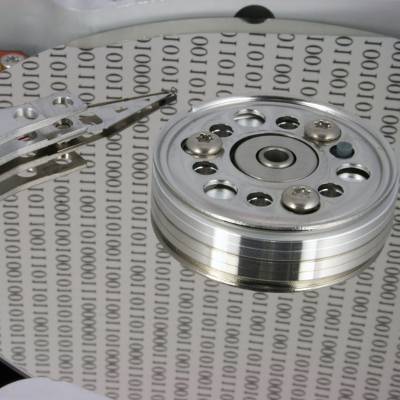Ferrum Technology Services Blog
It’s no secret that data backup is an important part of any IT strategy for small and medium-sized businesses. Backup and disaster recovery makes all the difference in keeping your business afloat in the event of a data loss incident. However, there’s still some debate over what the best approach is. According to a recent survey, it seems that many businesses find that both in-house and cloud-based backup solutions are needed in order to guarantee business continuity.
The search for the perfect way to handle a data loss disaster has led many businesses to implement data backup and disaster recovery solutions, but the most challenging part of doing so is finding a solution that can minimize data loss and recovery time. Furthermore, there’s a specific need to understand the difference between data backup and disaster recovery, as the two are certainly not the same thing.
These days, businesses practically expect disaster. With so many high-profile hacking attacks in the news, people are paranoid and fear for their data. Yet, even more businesses don’t fear enough, which can lead to unexpected data loss from hackers, natural disasters, and even user error. As a business owner, it’s your responsibility to ensure that your organization is prepared to handle disasters of all kinds.
 Business owners have many important decisions they must make pertaining to the continuation of their organization. Securing their company’s data may come off as yet another item on a to-do list, but, due to the critical role data plays in the day-to-day operations, this task should be a high priority for every modern business. Raising awareness of this critical issue is precisely why March 31st is World Backup Day!
Business owners have many important decisions they must make pertaining to the continuation of their organization. Securing their company’s data may come off as yet another item on a to-do list, but, due to the critical role data plays in the day-to-day operations, this task should be a high priority for every modern business. Raising awareness of this critical issue is precisely why March 31st is World Backup Day!
 For eons, the human species has sought to improve efficiency through the integration of new innovative technologies. We always push toward the bright new future, a garden filled with shimmering hardware and the sweet, sweet smell of silicon. Everything is running smoothly, just like music, until you hear a note that doesn’t belong. Instead of a chorus of heavenly angels serenading you as you open the door to your server room, you hear the sound of failure; hardware failure, to be specific; and it’s not pretty.
For eons, the human species has sought to improve efficiency through the integration of new innovative technologies. We always push toward the bright new future, a garden filled with shimmering hardware and the sweet, sweet smell of silicon. Everything is running smoothly, just like music, until you hear a note that doesn’t belong. Instead of a chorus of heavenly angels serenading you as you open the door to your server room, you hear the sound of failure; hardware failure, to be specific; and it’s not pretty.
 A quick scan of the past year’s headlines will show that a data-loss scenario resulting from a hack can unexpectedly hit any business, big or small. Your company needs to have a data backup solution in place, and it’s imperative that backups are taken regularly. Has it been awhile since you last backed up your data?
A quick scan of the past year’s headlines will show that a data-loss scenario resulting from a hack can unexpectedly hit any business, big or small. Your company needs to have a data backup solution in place, and it’s imperative that backups are taken regularly. Has it been awhile since you last backed up your data?
 When a disaster strikes, you should be able to recover quickly and efficiently with minimal downtime. Unfortunately, for some businesses, things don’t work out quite so smoothly. If your backup doesn’t process correctly, you might be in a bind when it comes time to restore operations from your backed-up data. How does one go about troubleshooting a failed backup?
When a disaster strikes, you should be able to recover quickly and efficiently with minimal downtime. Unfortunately, for some businesses, things don’t work out quite so smoothly. If your backup doesn’t process correctly, you might be in a bind when it comes time to restore operations from your backed-up data. How does one go about troubleshooting a failed backup?
 Do you get some of your best ideas somewhere other than at your desk? Ever get a brilliant game-changing idea while walking the dog, driving home from work, when out at a restaurant, or even in the shower? If you do, then you’ve experienced the frustration of forgetting your life-changing idea before you get a chance to write it down.
Do you get some of your best ideas somewhere other than at your desk? Ever get a brilliant game-changing idea while walking the dog, driving home from work, when out at a restaurant, or even in the shower? If you do, then you’ve experienced the frustration of forgetting your life-changing idea before you get a chance to write it down.
 A business is always at risk of being destroyed, be it online or offline. According to a study by 1&1, 67 percent of people confirmed that someone they know has had information stolen from them while online. In order to prevent your business from joining this statistic, there are several features you should look for when considering your network’s security.
A business is always at risk of being destroyed, be it online or offline. According to a study by 1&1, 67 percent of people confirmed that someone they know has had information stolen from them while online. In order to prevent your business from joining this statistic, there are several features you should look for when considering your network’s security.
 If you’re a heavy tech user, then eventually, your photos, apps, and videos will take up all the space on your mobile device’s hard drive, making it impossible to add anything new. Plus, Murphy’s Law states that this will happen at the worst possible time, like while you’re recording your kid’s recital. Follow these four tips and don’t get stuck with a lack of space.
If you’re a heavy tech user, then eventually, your photos, apps, and videos will take up all the space on your mobile device’s hard drive, making it impossible to add anything new. Plus, Murphy’s Law states that this will happen at the worst possible time, like while you’re recording your kid’s recital. Follow these four tips and don’t get stuck with a lack of space.
 A thorough data backup is important for your business continuity plan, and so is a fast and efficient disaster recovery solution. What's that? Aren't those the same thing? Unfortunately, the two concepts are far from the same thing, but many business owners are still under the impression that their data backup is also a disaster recovery solution.
A thorough data backup is important for your business continuity plan, and so is a fast and efficient disaster recovery solution. What's that? Aren't those the same thing? Unfortunately, the two concepts are far from the same thing, but many business owners are still under the impression that their data backup is also a disaster recovery solution.
One of the most important things in the business world today is data. Whether it’s customer data, sales data, employee data, whatever is important to you. A loss of critical data due to a failure in equipment can be crippling to any business. The data on your phone system is equally important. You can protect yourself with warranties in case of hardware failure. But what do you do to protect yourself against data loss, should the worst happen?
 Do you know what to get Dad this Father's Day to show him that you appreciate all that he's done for you? If he's a business owner, we have the perfect gift for him!
Do you know what to get Dad this Father's Day to show him that you appreciate all that he's done for you? If he's a business owner, we have the perfect gift for him!
That's right - Ferrum Technology Services' managed IT services! We don't mean buy them outright for him, but by suggesting our services to him, you can give him the greatest gift of all: peace of mind and a whole lot more cash in his pocket. Here are four good reasons to outsource Dad's IT services.
 As with anything else that's deliberately taken from you, having your smartphone stolen can be one of the most frustrating experiences ever. After all, many of us use them to keep us on point with our daily tasks. Measures are being taken by legislators and cell phone companies to help curb the issue, but there are ways that you can prevent and react to your phone being stolen.
As with anything else that's deliberately taken from you, having your smartphone stolen can be one of the most frustrating experiences ever. After all, many of us use them to keep us on point with our daily tasks. Measures are being taken by legislators and cell phone companies to help curb the issue, but there are ways that you can prevent and react to your phone being stolen.
 Your company's data is extremely valuable, which is why you have security measures in place in order to keep hackers out of your network. Although, it's easy to spend so much time focused on your network firewall that sometimes, securing your backed-up files gets overlooked. In the hands of a hacker, the copies of your backed up data can be just as valuable as breaching your network.
Your company's data is extremely valuable, which is why you have security measures in place in order to keep hackers out of your network. Although, it's easy to spend so much time focused on your network firewall that sometimes, securing your backed-up files gets overlooked. In the hands of a hacker, the copies of your backed up data can be just as valuable as breaching your network.
 Your company's data is debatably your most valuable resource. When companies accidentally lose their data, their future in business is not a favorable fight. In fact, if any given small business is unable to access their data for ten days or more, statistically they likely will not survive the following fiscal year. Learn how to defend your data.
Your company's data is debatably your most valuable resource. When companies accidentally lose their data, their future in business is not a favorable fight. In fact, if any given small business is unable to access their data for ten days or more, statistically they likely will not survive the following fiscal year. Learn how to defend your data.
 When you mention the term 'disaster recovery,' most people think about the big ground-shattering events like earthquakes, fires, floods, tropical storms, etc. While these natural events are certainly disasters and devastating in their own right, smaller things can constitute as a disaster for your business, and they aren't seasonal.
When you mention the term 'disaster recovery,' most people think about the big ground-shattering events like earthquakes, fires, floods, tropical storms, etc. While these natural events are certainly disasters and devastating in their own right, smaller things can constitute as a disaster for your business, and they aren't seasonal.





